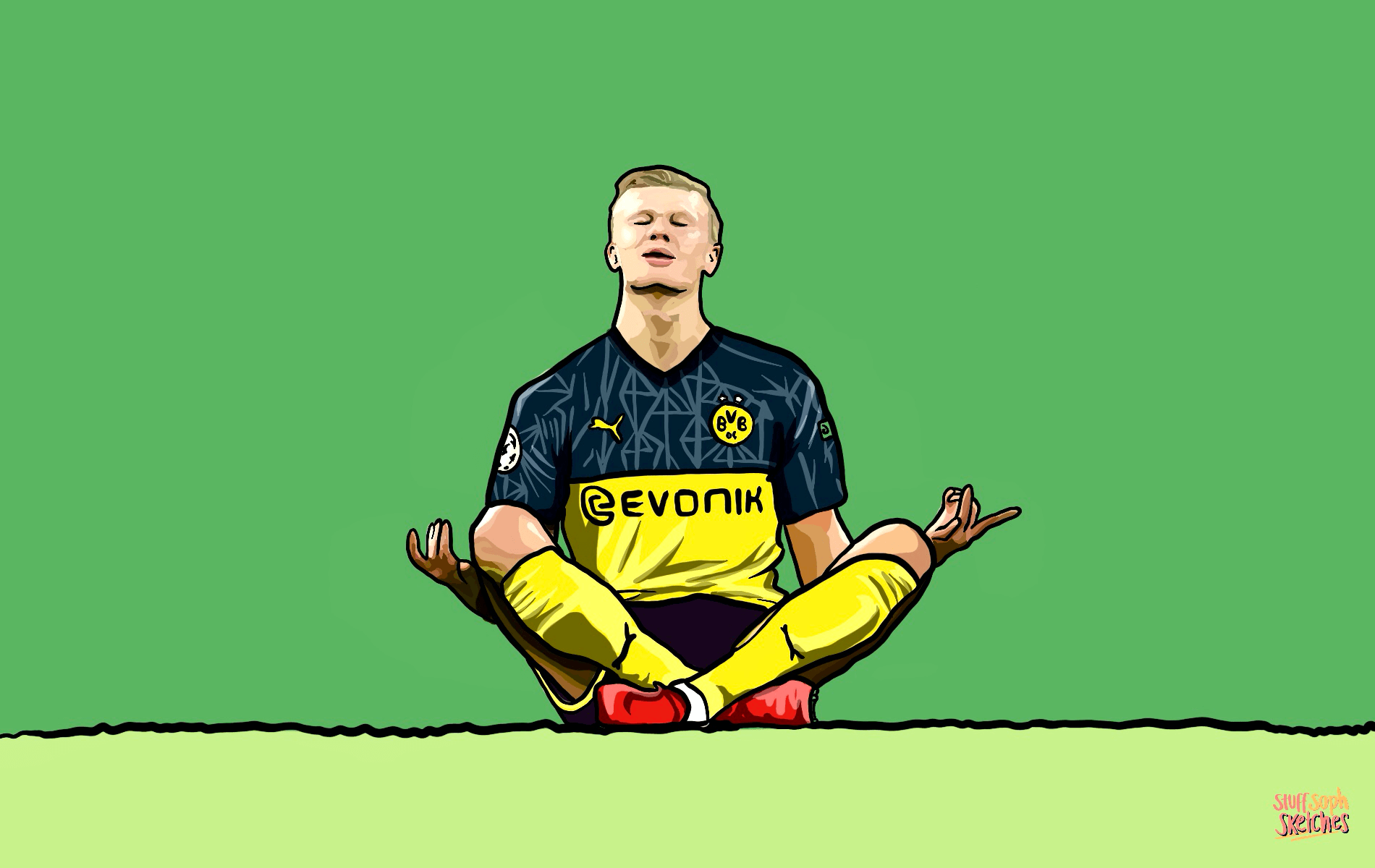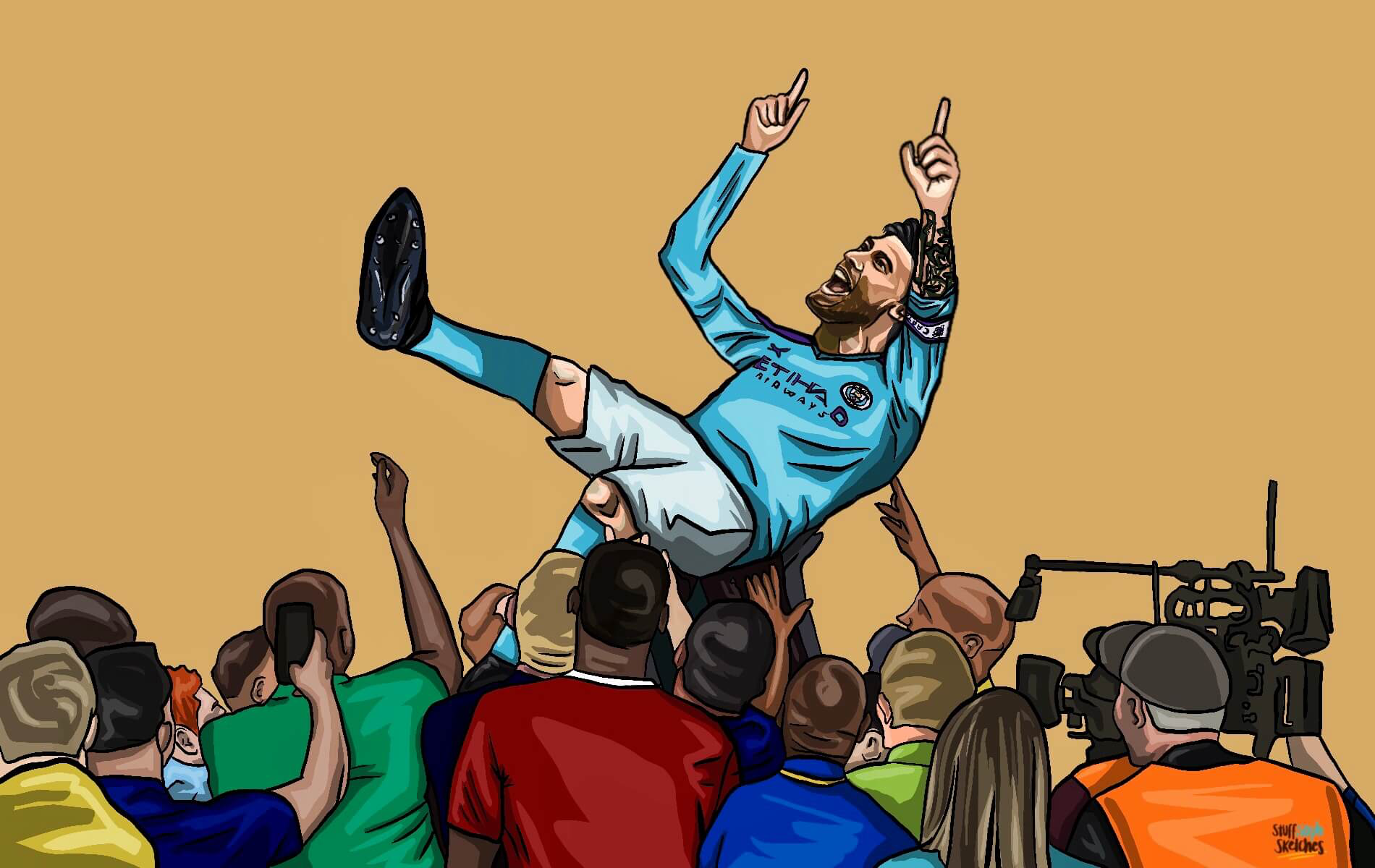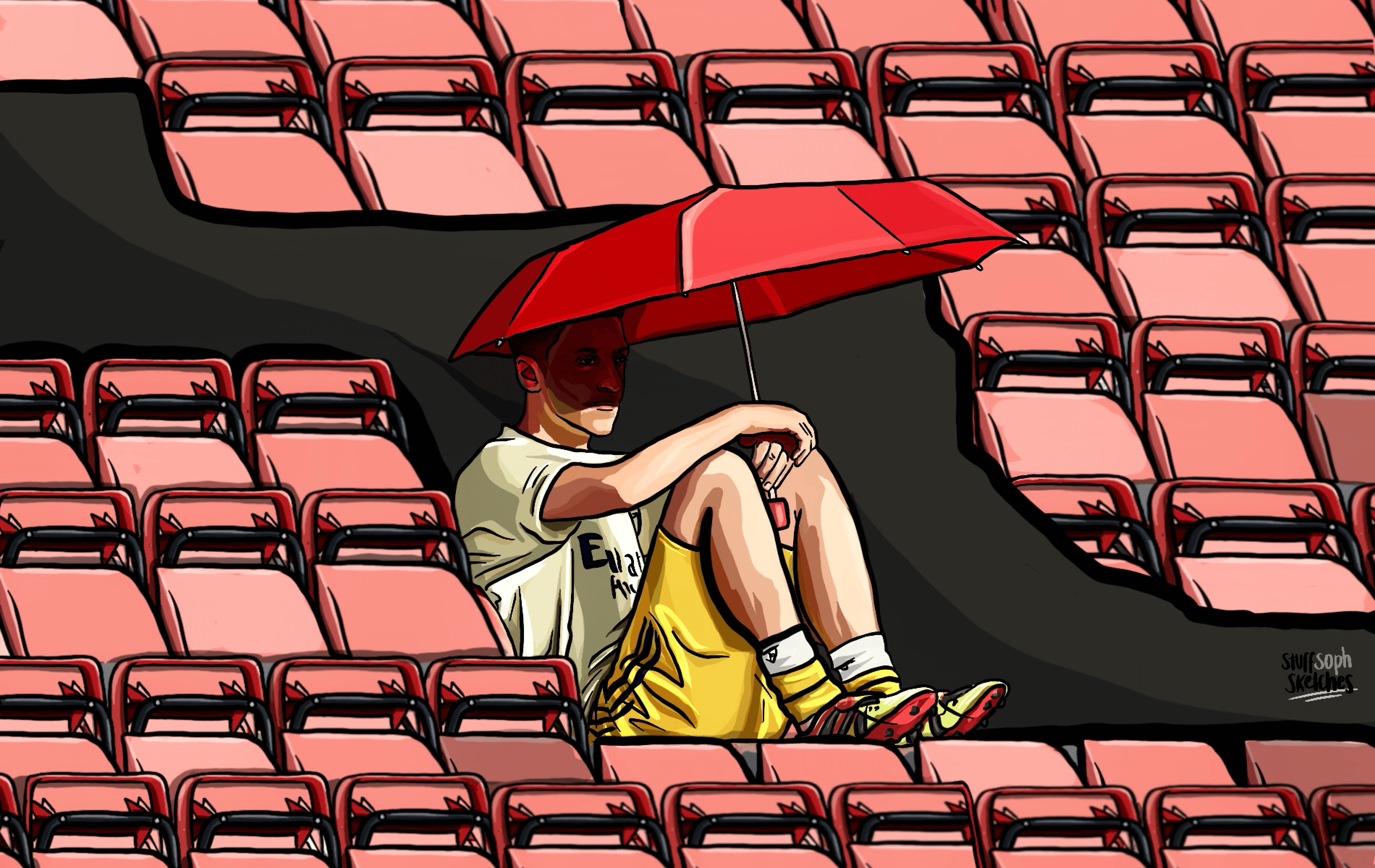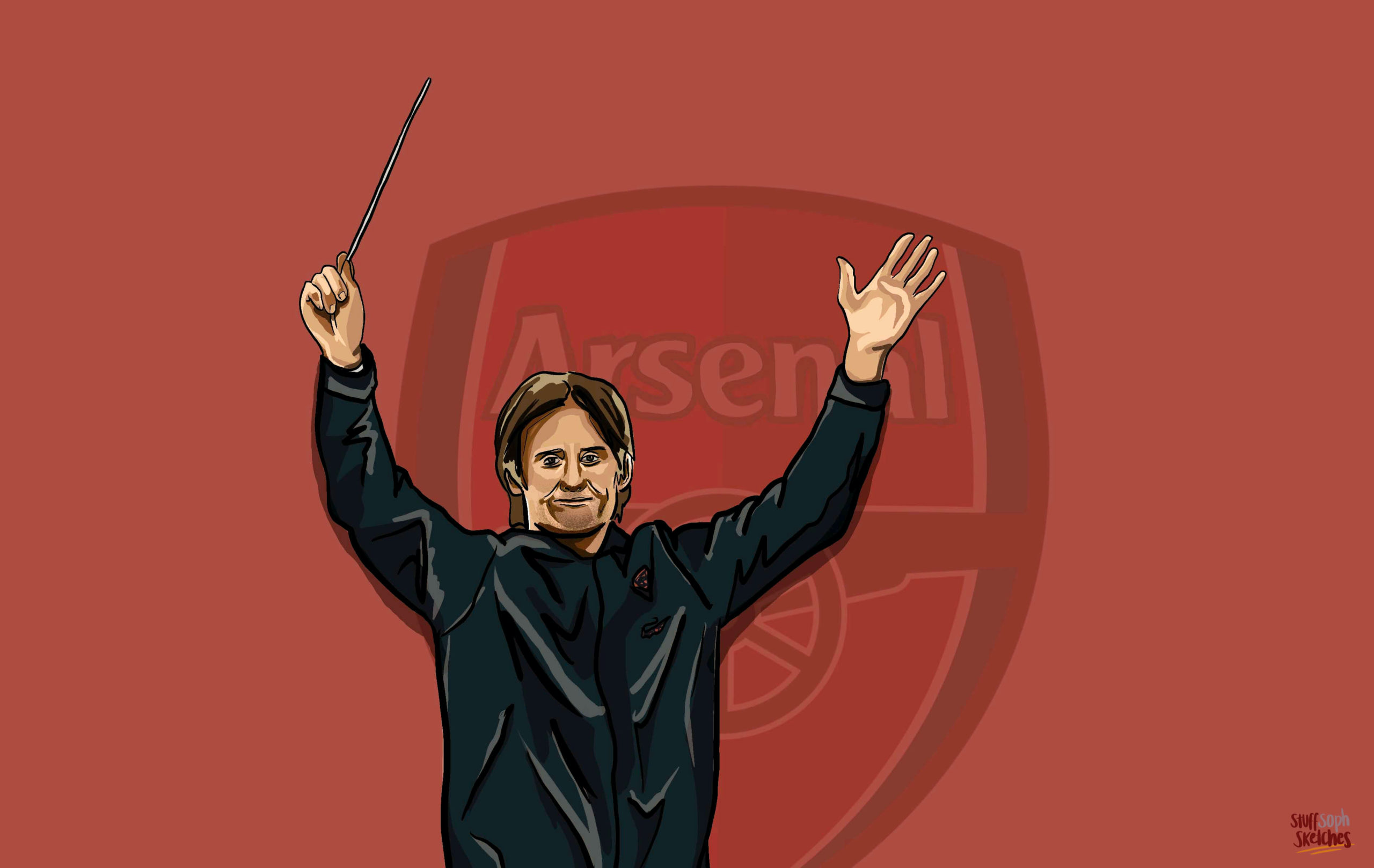Erling Braut Haaland came from footballing stock. Born 21 July 2000, son of Alf-Inge Haaland, he always had a mind of his own. Recently, I was scrolling through my Twitter feed, riding an endless dopamine loop, chasing tiny hits of endorphin-induced pleasure, when I stumbled across some old footage of Erling Haaland, aged just thirteen. He was being interviewed after scoring two goals during an indoor football game for the youth side of Byrne FK. The journalist leans over him and asks ‘Where did you learn this? From your Dad?’ Au contraire, Haaland replies ‘I don’t know. By myself.’ Almost bemused, the interviewer persists ‘He doesn’t get the credit for it?’ and Haaland definitively states ‘No, but for everything else’. For some reason, this touched me. The supreme self-confidence in his own ability, coincided with a humble gratitude toward everything his father has done for him made me think that Erling Haaland was always going to make it. His father happily concedes that the apprentice quickly became the master. One thing about his father, Erling recalls, was that he never interfered, although he did teach him a thing or two: ‘I think he has learned a few things from me, mentality, willing to win, appreciating his teammates when they’re doing well… Football is a team game.’ Wise words from the former player most remembered for spells in the Premier League with Nottingham Forest, Leeds United and Manchester City.
It is said that a rose’s rarest essence lives in the thorn and at Molde FK, Haaland became sharp. Lethal, in fact.
Haaland grew up in a town situated in the southwest of Norway called Byrne. It is here where he enjoyed his childhood. Now, much older, Haaland reminisces about the ‘very small town where I biked all over’. Though it is home to a modest 12,000 inhabitants, Byrne is fixed on the map with strong footballing roots. Around the time of Haaland’s birth, Byrne FK were competing in the UEFA cup, although now they sit in the third division. It was with this side that during the 2015-16 season, Haaland managed an eyebrow-raising eighteen goals in fourteen matches for the reserve side, which led to his first professional game at the tender age of fifteen.
Alf Ingve Berntsen, Byrne FK Youth Coach, speaks of Haaland with a tear-jerking fondness. He reflects on the shadows of his past, though with the grace of one who wishes not to chase them. He simply appreciates having had the opportunity to see such a rise of an individual with whom he had spent ten years coaching. Berntsen, now a school professor, has been asked countless times whether he can accredit himself to the making of the tall, blonde powerhouse that European football has become so familiar with. It may be your wish to hear that Berntsen was Norway’s very own Victor Frankenstein, somebody who sewed the joints together of the perfect striker, one who brought him to life with chemicals and a mysterious spark. Sorry to disappoint, but it is a far simpler formula than that. In fact, Alf Ingve Berntsen is incredibly coy. He explains that when playing with Byrne’s first team he ‘never scored but met strong characters and developed intelligence… he had natural ability that you can’t teach’. Haaland played there for twelve years before moving to Molde FK.
So, that was the next step in his journey. A young, ambitious Erling Haaland made the transfer to Molde, a place nicknamed the “The Town of Roses”. It is said that a rose’s rarest essence lives in the thorn and at Molde FK, Haaland became sharp. Lethal, in fact. Signing at sixteen, it is said that he ate like a horse and grew eight centimetres during his two years at the club, scoring sixteen goals in thirty matches in the 2018 season. He was named best newcomer in Norway’s Eliteserien and began to make a name for himself.
Around 32,000 people live in Molde and other than scenic surroundings, glistening lakes brimming with trout and salmon, there is not much else there. Possibly the perfect setting for moulding a future elite performer. Molde’s supporter club are named Tornekrattet (the thicket of thorns), and he is most remembered by their faithful for scoring four goals in just seventeen minutes against SK Brann. A Manchester United scout had attended the match, but Haaland was already attracting attention from clubs all over Europe. Patience and good decision-making have been key to his development and, with both those qualities exercised with precision, he finally decided to sign a five-year contract with RB Salzburg.
Following his migration to Salzburg, it did not take Erling Haaland long to make a name for himself in the city that gave birth to Wolfgang Amadeus Mozart. It was Symphony No. 12 for the Norwegian Terminator as he managed to orchestrate four hattricks in eight weeks. These impressive numbers were composed in the Austrian Cup, Austrian Bundesliga and on one of the grandest stages of all: the UEFA Champions League. It didn’t take long for the silverware to appear. He managed to win two Austrian Bundesliga titles and one Austrian cup. Records were starting to be broken too. During his run in the UEFA Champions League, he became the first teenager to score in five consecutive games. If Europe’s top clubs felt interested before, they were quickly placed on red alert.
It is a well-known fact that current Manchester United boss Ole Gunnar Solskjær was on familiar terms with his compatriot, having managed him at Molde. There was strong suggestion in December 2019 that Haaland would soon be arriving at Old Trafford. Alas, United fans, it wasn’t to be. As stated earlier, Haaland has always been careful with regards to his career progression, and it was Borussia Dortmund who were gifted an early Christmas present with his signature. What a decision that turned out to be. It took him only twenty-three minutes to score a hattrick during his debut performance against FC Augsburg. Since then, The Terminator has been vaporising the record books. To date he is the youngest and fastest player to score twenty Champions League goals (14 games), the youngest player to score in six consecutive Champions League appearances, the first player to score at least two goals in four consecutive Champions League games, first teenager to score ten goals in a Champions League campaign, the first Dortmund player to score on their debut in the Bundesliga, DFB-Pokal and Champions League, the first to score eight goals in his first four Bundesliga games and winning the Bundesliga Play of the Match award after playing just fifty-nine minutes. The impressive numbers go on. Not a bad reputation to have fostered for yourself before reaching twenty-one years old.
Is there a caveat to all of this? If anyone is capable of trying to taint such a wonderful uprising, then you can trust social media’s keyboard warriors. Haaland has come under fire by some who believe that his interview style comes across as rude, obnoxious and even ungrateful. Personally, I think this is absolute tripe. I do not see this recalcitrance; instead, I see a professional who oozes confidence; a man with a stylish suss that speaks clearly to us and says, ‘I believe in myself’.
What is next for Erling Haaland? From June 2022, a release clause of 75 million euros becomes valid. You can’t help but think the price will soar beyond that figure. Right now, he is fighting for parity with the likes of Kylian Mbappe for status as the best young goal-scorer in world football. Haaland somewhat acknowledges this by saying ‘look at Kylian Mbappe, he’s always banging goals in Ligue 1… you can always reach a higher level’. With the “Ronaldo versus Messi” era reaching its penultimate years, let’s hope this is a rivalry that is worthy of taking its place. Erling Braut Haaland’s goal is to become the best player in the world, and he might even do it. What’s his secret? ‘Maybe it’s magic, I don’t know’.



